Zdravko Grebo has passed away

 On January 29, 2019, Professor Zdravko Grebo, a long-time friend, associate and member of the HLC Executive Board, passed away in Sarajevo. Always perspicacious, amusing and charming, ever ready to share an anecdote from his life regarding almost any topic, he had a proposal for a solution to the challenges we might be facing. Until the very end of his life, he consistently and firmly advocated for establishing the truth and responsibility for the crimes committed during the wars in the territory of the former Yugoslavia during the 1990s. The passing of Professor Grebo is a great loss for all sincere advocates of a civil society, but his works remain, for all his admirers to be proud of. We will remember him and keep him in our memories always.
On January 29, 2019, Professor Zdravko Grebo, a long-time friend, associate and member of the HLC Executive Board, passed away in Sarajevo. Always perspicacious, amusing and charming, ever ready to share an anecdote from his life regarding almost any topic, he had a proposal for a solution to the challenges we might be facing. Until the very end of his life, he consistently and firmly advocated for establishing the truth and responsibility for the crimes committed during the wars in the territory of the former Yugoslavia during the 1990s. The passing of Professor Grebo is a great loss for all sincere advocates of a civil society, but his works remain, for all his admirers to be proud of. We will remember him and keep him in our memories always.






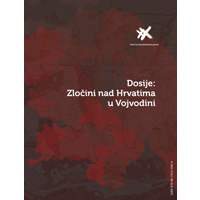
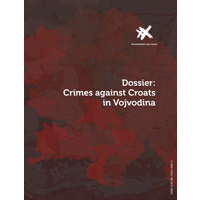 On Thursday, January 31, 2019, the Humanitarian Law Center (HLC) will present its eleventh dossier, entitled “Crimes against Croats in Vojvodina” (Dossier). The presentation will take place in the Great Hall of the Media Center in Belgrade (Terazije 3, II floor) at 12:00.
On Thursday, January 31, 2019, the Humanitarian Law Center (HLC) will present its eleventh dossier, entitled “Crimes against Croats in Vojvodina” (Dossier). The presentation will take place in the Great Hall of the Media Center in Belgrade (Terazije 3, II floor) at 12:00.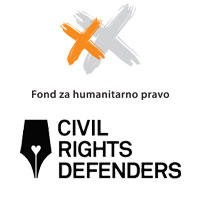
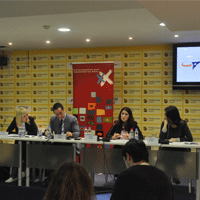




 On Thursday, 20 December 2018, the Humanitarian Law Center (HLC) will present the “Third Report on the Implementation of the National Strategy for the Prosecution of War Crimes” and the Analysis “Regional Judicial Cooperation in the Prosecution of War crimes: Analysis and Improvement Recommendations”. The presentation will take place at 11:00 in the Great Hall of the Media Centre (Terazije 3, 2nd Floor).
On Thursday, 20 December 2018, the Humanitarian Law Center (HLC) will present the “Third Report on the Implementation of the National Strategy for the Prosecution of War Crimes” and the Analysis “Regional Judicial Cooperation in the Prosecution of War crimes: Analysis and Improvement Recommendations”. The presentation will take place at 11:00 in the Great Hall of the Media Centre (Terazije 3, 2nd Floor).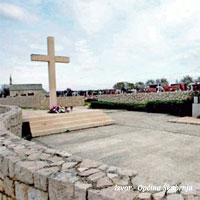
 On Sunday, November 18, 2018, we mark exactly 27 years since the commission of the crimes by members of the Yugoslav People’s Army (JNA) and Territorial Defence (TO) of Benkovac against Croatian civilians in the villages of Škabrnja and Nadin. Although the Humanitarian Law Center (HLC) filed criminal charges for these crimes with the Office of the War Crimes Prosecutor (OWCP) in November 2017, to date the HLC has no information as to whether the OWCP has taken any legal action that would lead to the trial of those responsible for this crime.
On Sunday, November 18, 2018, we mark exactly 27 years since the commission of the crimes by members of the Yugoslav People’s Army (JNA) and Territorial Defence (TO) of Benkovac against Croatian civilians in the villages of Škabrnja and Nadin. Although the Humanitarian Law Center (HLC) filed criminal charges for these crimes with the Office of the War Crimes Prosecutor (OWCP) in November 2017, to date the HLC has no information as to whether the OWCP has taken any legal action that would lead to the trial of those responsible for this crime. Today, exactly two years have passed since the Humanitarian Law Center (HLC) filed a
Today, exactly two years have passed since the Humanitarian Law Center (HLC) filed a 
 On October 16, 2018, the Humanitarian Law Center (HLC) filed a criminal complaint with the Office of the War Crimes Prosecutor (OWCP) of the Republic of Serbia against several unknown persons, for killing three members of the Matijević family in April 1992 in Kukujevci (Municipality of Šid, Serbia).
On October 16, 2018, the Humanitarian Law Center (HLC) filed a criminal complaint with the Office of the War Crimes Prosecutor (OWCP) of the Republic of Serbia against several unknown persons, for killing three members of the Matijević family in April 1992 in Kukujevci (Municipality of Šid, Serbia).